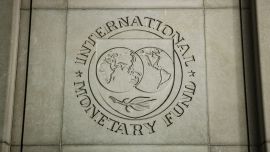The ENACOM National Communications Entity tendered the fifth-generation frequencies (5G) for mobile telephones on Wednesday, where it announced the collection of US$875 million, to be paid by Telecom, Movistar and Claro.
“It’s the decision of a country to embrace the technology and knowledge revolution, for the country’s inhabitants to have faster and cheaper mobiles,” said Massa.
He added that it is “nearly 900 million [US] dollars over the next 21 days to be paid by telephone companies, a very important thing in terms of achieving fiscal targets, appraising public assets and confidence of the private sector, since every company will also invest a further US$1 billion for the 5G deployment”.
All three mobile services provided bade US$875,091,000 for two 100-Megahertz lot and another 50-Megahertz one, in the frequency band between 3.3 and 3.6 Gigahertz, over 20 years.
The base price of every 100-Megahertz lot was US$350 million. “The first bid was entered by Claro, which paid US$52,000 more than the base price. The second one was by Telecom (a company owned 40 percent by CVH, a company of shareholders of the Grupo Clarín), which paid US$26,000 more than the base price. The third bid was by Telefónica, which bought half a lot and paid US$175 million, plus the US$13,000 proportionate”, said Diego Leiva, general coordinator of Technical Affairs for ENACOM.
All three companies had previously deposited US$20 million each to secure the bid and had been positively short-listed by ENACOM to present their economic proposals.
“We’re very happy to have completed the tender process, for Argentina to deploy 5G shortly”, said Claudio Ambrosini, president of ENACOM, who highlighted the “public and private articulation” to be able to finalise this initiative.
The main characteristics of 5G are based on the availability of a greater bandwidth, the extreme reliability of the network, with 100 times more response speed than 4G, and the chance to increase the number of connected devices exponentially, including connectivity between devices.
Yet in order to be able to implement it the frequencies for 5G, investment in frequencies and new infrastructure are all necessary, which is nearly all imported materials.
Therefore, the Government announced it would implement a special import regime for 5G, so that companies can bring the radio bases, fibre optics and all the equipment needed to deploy the new fifth-generation mobile networks.
The Government’s objective was to make US$1.05 billion, in order to go through the last days of Alberto Fernández’s administration, but Telefónica was the only one who bought half a 100-Megahertz lot, and thus the remaining 50-Megahertz half a lot was left and the tender cashed in US$875 million.
Together with the new swap with China, this will help the Government have greater reserves in the Central Bank. And users may start to use the 5G telephone service next year.
Massa highlighted the fiscal impact resulting from the generation of foreign currency in the initiative. “Bringing in nearly US$900 million over the next 21 days, as part of the payment to use a public asset as telephone companies do, is very important in fiscal terms in order to secure the fulfilment of fiscal goals. And it’s very important in terms of confidence by the private sector at a time when political uncertainty for investments seemed to prevail”.
“Despite this time of political uncertainty, you must understand that we’re not tendering a government. It’s the decision by a country to embrace the technology and knowledge, develop and also to develop competence for our citizens to have faster and cheaper internet and mobile phones”, the Unión por la Patria candidate concluded.
– TIMES/NA



















Comments